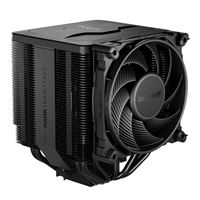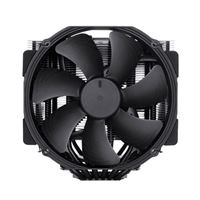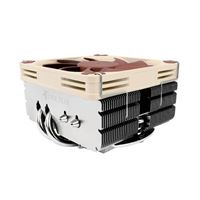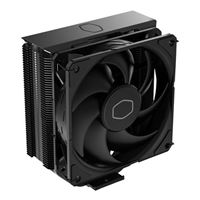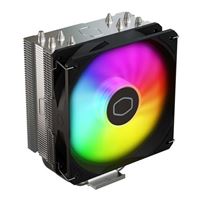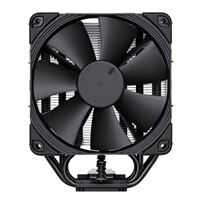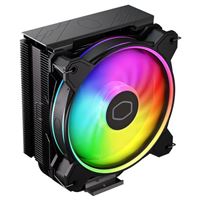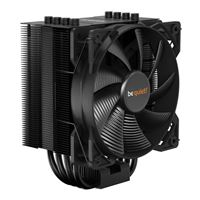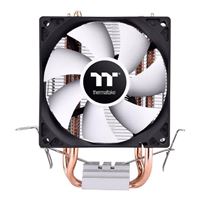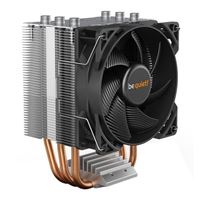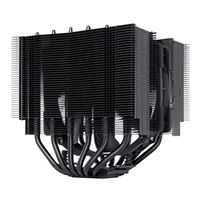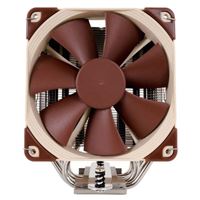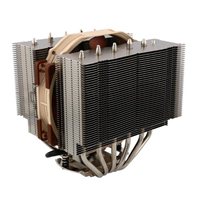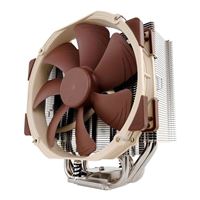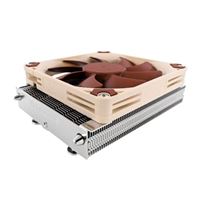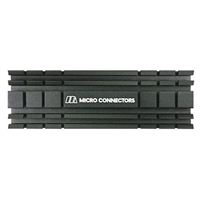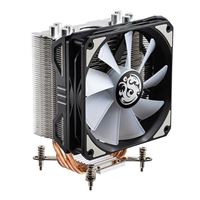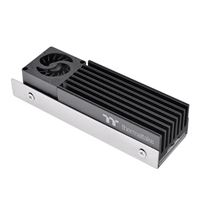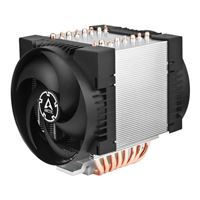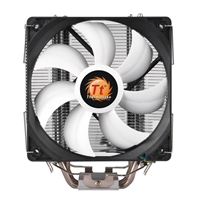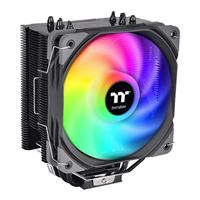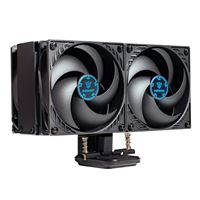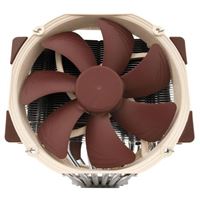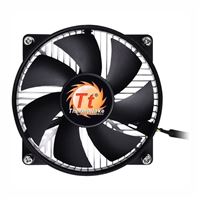Breadcrumbs
- Selected Refinements:
- Air & Water Coolingx
- CPU/GPU, Chipset Heatsinksx
Special Offers / Advertisements
Compare up to 4 items
New list of matching products
X
Sorry, you may compare a maximum of 4 items at a time.
Please clear one or more of your compare items before adding another-
Usually ships in 5-7 business days.Our price $99.99
-
Usually ships in 5-7 business days.Our price $129.99
-
Usually ships in 5-7 business days.Our price $69.99
-
Usually ships in 5-7 business days.Our price $29.99
-
Usually ships in 5-7 business days.Our price $16.99
Original price $19.99Save $3.00 -
Usually ships in 5-7 business days.Our price $89.99
-
Usually ships in 5-7 business days.Our price $34.99
-
Usually ships in 5-7 business days.Our price $44.99
-
SKU: 406850
- Intel LGA 1700 Support
- AMD AM4 Support
- 92mm PWM Fan
- Intel LGA 1700 Support
- AMD AM4 Support
- 92mm PWM Fan
Usually ships in 5-7 business days.Our price $19.99 -
Usually ships in 5-7 business days.Our price $26.99
-
Usually ships in 5-7 business days.Our price $119.99
-
Usually ships in 5-7 business days.Our price $89.99
-
Usually ships in 5-7 business days.Our price $109.99
-
Usually ships in 5-7 business days.Our price $89.99
-
Usually ships in 5-7 business days.Our price $56.99
-
SKU: 767152
- Heat Resistant Silicone rings included to secure heat sinks
- Low profile with 5mm height
- Total height of 8.6mm with M.2 NVMe installed
- Works with PS5 M.2 NVMe Storage upgrade
- Heat Resistant Silicone rings included to secure heat sinks
- Low profile with 5mm height
- Total height of 8.6mm with M.2 NVMe installed
Usually ships in 5-7 business days.Our price $10.99 -
Usually ships in 5-7 business days.Our price $29.99
-
Usually ships in 5-7 business days. Limited availability. May not be in stock at time of order. No back orders.Our price $19.99
-
Usually ships in 5-7 business days.Our price $64.99
-
Usually ships in 5-7 business days.Our price $34.99
-
SKU: 406843
- 5V Motherboard ARGB Sync 16.8 Million Colors 15 Addressable LED
- AMD/Intel Universal Socket
- Copper Base U-Shape Heatpipes
- 170W CPU Cooler
- 5V Motherboard ARGB Sync 16.8 Million Colors 15 Addressable LED
- AMD/Intel Universal Socket
- Copper Base U-Shape Heatpipes
Usually ships in 5-7 business days.Our price $29.99 -
Usually ships in 5-7 business days.Our price $169.99
-
Usually ships in 5-7 business days.Our price $114.99
-
Usually ships in 5-7 business days.Our price $14.99
Special Offers / Advertisements
{
'name': 'DARK ROCK PRO 5 CPU Air Cooler',
'id': '675565',
'price': '99.99',
'brand': 'be quiet',
'category': 'CPU/GPU, Chipset Heatsinks|145',
'list': 'Search Results',
'position': 1
},{
'name': 'NH-D15 Black CPU Cooler',
'id': '617828',
'price': '129.99',
'brand': 'Noctua',
'category': 'CPU/GPU, Chipset Heatsinks|145',
'list': 'Search Results',
'position': 2
},{
'name': 'NH-L9X65 Low Profile CPU Cooler',
'id': '680834',
'price': '69.99',
'brand': 'Noctua',
'category': 'CPU/GPU, Chipset Heatsinks|145',
'list': 'Search Results',
'position': 3
},{
'name': 'Hyper 212 CPU Air Cooler - Black',
'id': '674387',
'price': '29.99',
'brand': 'Cooler Master',
'category': 'CPU/GPU, Chipset Heatsinks|145',
'list': 'Search Results',
'position': 4
},{
'name': 'Hyper 212 Spectrum V3 CPU Air Cooler',
'id': '667265',
'price': '16.99',
'brand': 'Cooler Master',
'category': 'CPU/GPU, Chipset Heatsinks|145',
'list': 'Search Results',
'position': 5
},{
'name': 'NH-U12S chromax.black CPU Cooler',
'id': '622117',
'price': '89.99',
'brand': 'Noctua',
'category': 'CPU/GPU, Chipset Heatsinks|145',
'list': 'Search Results',
'position': 6
},{
'name': 'Hyper 212 Halo CPU Air Cooler - Black',
'id': '663346',
'price': '34.99',
'brand': 'Cooler Master',
'category': 'CPU/GPU, Chipset Heatsinks|145',
'list': 'Search Results',
'position': 7
},{
'name': 'PURE ROCK 2 CPU Cooler',
'id': '640535',
'price': '44.99',
'brand': 'be quiet',
'category': 'CPU/GPU, Chipset Heatsinks|145',
'list': 'Search Results',
'position': 8
},{
'name': 'Contac 9 SE 120W TDP CPU Cooler',
'id': '649773',
'price': '19.99',
'brand': 'Thermaltake',
'category': 'CPU/GPU, Chipset Heatsinks|145',
'list': 'Search Results',
'position': 9
},{
'name': 'PURE ROCK SLIM 2 CPU Cooler',
'id': '640534',
'price': '26.99',
'brand': 'be quiet',
'category': 'CPU/GPU, Chipset Heatsinks|145',
'list': 'Search Results',
'position': 10
},{
'name': 'NH-D15S Chromax Black CPU Cooler',
'id': '649943',
'price': '119.99',
'brand': 'Noctua',
'category': 'CPU/GPU, Chipset Heatsinks|145',
'list': 'Search Results',
'position': 11
},{
'name': 'NH-U12S CPU Cooler',
'id': '617831',
'price': '89.99',
'brand': 'Noctua',
'category': 'CPU/GPU, Chipset Heatsinks|145',
'list': 'Search Results',
'position': 12
},{
'name': 'NH-D15S CPU Cooler',
'id': '639830',
'price': '109.99',
'brand': 'Noctua',
'category': 'CPU/GPU, Chipset Heatsinks|145',
'list': 'Search Results',
'position': 13
},{
'name': 'NH-U14S CPU Cooler',
'id': '639543',
'price': '89.99',
'brand': 'Noctua',
'category': 'CPU/GPU, Chipset Heatsinks|145',
'list': 'Search Results',
'position': 14
},{
'name': 'NH-L9a-AM4 Low Profile CPU Cooler',
'id': '617826',
'price': '56.99',
'brand': 'Noctua',
'category': 'CPU/GPU, Chipset Heatsinks|145',
'list': 'Search Results',
'position': 15
},{
'name': 'M.2 2280 SSD Low-Profile Heat Sink Kit - Black',
'id': '507161',
'price': '10.99',
'brand': 'Micro Connectors',
'category': 'CPU/GPU, Chipset Heatsinks|145',
'list': 'Search Results',
'position': 16
},{
'name': 'Phantom CPU Air Cooler',
'id': '665345',
'price': '29.99',
'brand': 'Bitspower',
'category': 'CPU/GPU, Chipset Heatsinks|145',
'list': 'Search Results',
'position': 17
},{
'name': 'MS-1 M.2 2280 SSD Cooler',
'id': '681664',
'price': '19.99',
'brand': 'Thermaltake',
'category': 'CPU/GPU, Chipset Heatsinks|145',
'list': 'Search Results',
'position': 18
},{
'name': 'Freezer 4U-M Server CPU Air Cooler',
'id': '675191',
'price': '64.99',
'brand': 'Arctic Cooling',
'category': 'CPU/GPU, Chipset Heatsinks|145',
'list': 'Search Results',
'position': 19
},{
'name': 'Contac Silent 12 CPU Cooler',
'id': '476154',
'price': '34.99',
'brand': 'Thermaltake',
'category': 'CPU/GPU, Chipset Heatsinks|145',
'list': 'Search Results',
'position': 20
},{
'name': 'UX200 SE CPU Cooler',
'id': '649772',
'price': '29.99',
'brand': 'Thermaltake',
'category': 'CPU/GPU, Chipset Heatsinks|145',
'list': 'Search Results',
'position': 21
},{
'name': 'ProSiphon Elite Intel/AMD CPU Cooler',
'id': '635270',
'price': '169.99',
'brand': 'IceGiant',
'category': 'CPU/GPU, Chipset Heatsinks|145',
'list': 'Search Results',
'position': 22
},{
'name': 'NH-D15 Brown CPU Cooler',
'id': '617830',
'price': '114.99',
'brand': 'Noctua',
'category': 'CPU/GPU, Chipset Heatsinks|145',
'list': 'Search Results',
'position': 23
},{
'name': 'Silent 1156 CPU Cooler',
'id': '417461',
'price': '14.99',
'brand': 'Thermaltake',
'category': 'CPU/GPU, Chipset Heatsinks|145',
'list': 'Search Results',
'position': 24
}
{'id': 'Banner',
'name': 'Microsoft Windows 11 Web Banner',
'creative': 'https://60a99bedadae98078522-a9b6cded92292ef3bace063619038eb1.ssl.cf2.rackcdn.com/webp_12_2023Windows11.webp',
'position': '1' }


